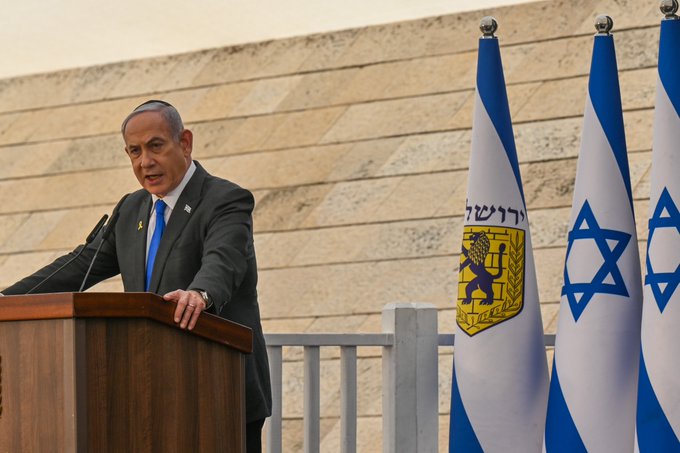Israeli ministers authorise Netanyahu retaliation against Hezbollah
Israel’s security cabinet has given Prime Minister Benjamin Netanyahu and his defense minister the authority to decide on the timing and method of retaliation for a fatal rocket attack, which both Israel and the US attribute to the Lebanese Shia militant group Hezbollah.
An emergency meeting was held following the attack on the Israeli-occupied Golan Heights on Saturday evening, which resulted in the deaths of 12 children and teenagers from the Druze community.
Hezbollah has denied involvement in the incident.
This attack marks the deadliest cross-border clash in recent months of ongoing exchanges of fire between the two sides. It has heightened concerns that the relatively contained hostilities could escalate into a full-scale war.
Western governments are urging Israel to exercise restraint in its response. The White House has stated that it has been in “continuous discussions with Israeli and Lebanese counterparts” since the tragic incident in the Druze town of Majdal Shams.
It said it was “also working on a diplomatic solution along the Blue Line [the unofficial frontier between Israel and Lebanon] that will end all attacks once and for all”.
On Monday morning, an Israeli drone strike near the Lebanese town of Shaqra, roughly 6.5 km (four miles) from the Israeli border, resulted in the deaths of two people, according to Lebanon’s state media.
Hezbollah has identified the deceased as two of its fighters, but Israel has yet to comment on the incident.
In response to rising concerns of Israeli retaliation, Air France has suspended flights to and from Beirut, joining Lufthansa, Swiss International Air Lines, and Eurowings in halting their services.
On Sunday in Majdal Shams, the funerals for the young victims were marked by intense mourning. Thousands gathered to witness the caskets, covered in white, being carried through the town.
The attack is considered the most severe to impact the Druze community, who have lived in the Golan Heights for centuries. The Druze are an Arabic-speaking ethnic and religious group residing in Lebanon, Syria, the Golan Heights, and northern Israel.
Since Israel captured the Golan Heights from Syria during the 1967 war, the area has been under Israeli control, although many residents remain loyal to Syria. Of the approximately 21,000 people living on the plateau, about 20% hold Israeli citizenship.
The strike on Majdal Shams has sparked outrage both within Israel and among the Druze community, which includes around 110,000 members residing in Israel.
Following the attack, Prime Minister Netanyahu cut short his visit to the US and returned to Israel, where he met with defense officials and convened the security cabinet on Sunday.
After the hours-long meeting, the prime minister’s office issued a brief statement, saying only that the “members of the Cabinet authorised the prime minister and the defence minister to decide on the manner and timing of the response against the Hezbollah terrorist organisation”.
In a condolence call earlier to the spiritual leader of Israel’s Druze community, Sheikh Muafak Ṭarif, Mr Netanyahu said Hezbollah would “pay a heavy price for this that it has not paid to this point”.
Hezbollah has strongly denied it was behind the attack, reportedly blaming the bloodshed on a failed Israeli interceptor missile.
In a statement on Sunday, the Israeli military Chief of Staff Lt Gen Herzi Halevi said the Israel Defense Forces (IDF) knew “exactly where the rocket was launched from”.
Gen Halevi identified it as an Iranian made unguided surface-to-surface Falaq rocket with a 53kg warhead. “This is a Hezbollah rocket. And whoever launches such a rocket into a built-up area wants to kill civilians, wants to kill children,” he said.
Previously sporadic fighting between Israel and Hezbollah has escalated since Hezbollah fired rockets at Israeli positions a day after Hamas’s deadly attack on Israel on 7 October. Hezbollah says it is acting in support of the Palestinians.



